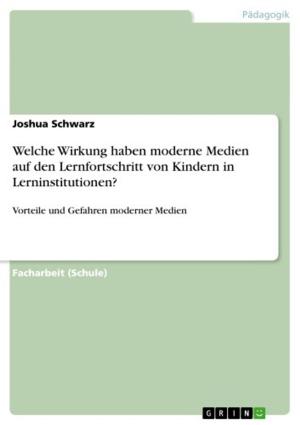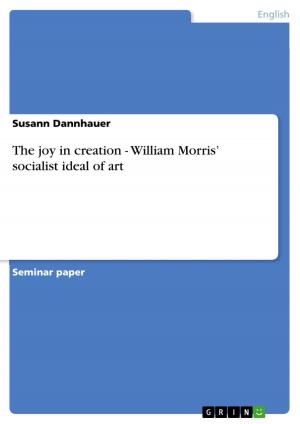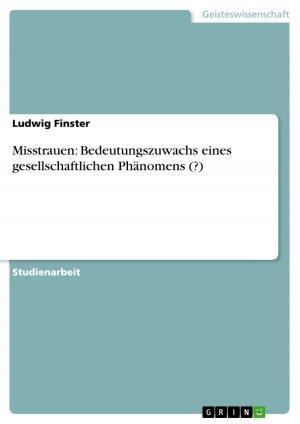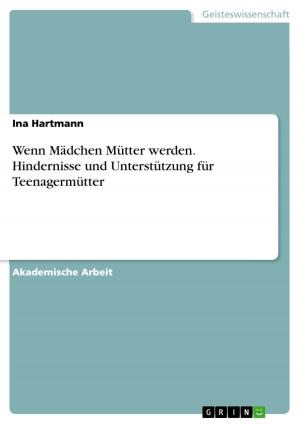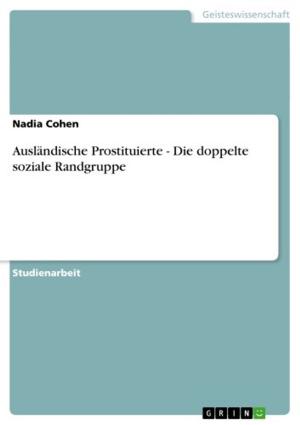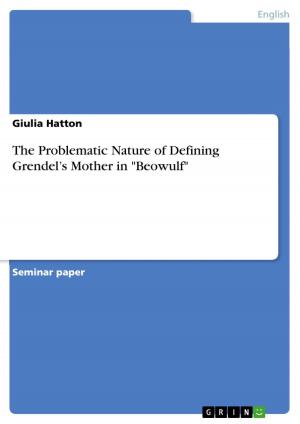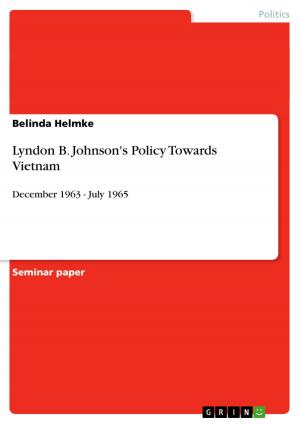'Myself is fabricated, an aberration'
The serial killer as a product of mass culture in Bret Easton Ellis´ 'American Psycho'
Nonfiction, Entertainment, Drama, Anthologies| Author: | Reinhard Goebels | ISBN: | 9783638018012 |
| Publisher: | GRIN Verlag | Publication: | March 5, 2008 |
| Imprint: | GRIN Verlag | Language: | English |
| Author: | Reinhard Goebels |
| ISBN: | 9783638018012 |
| Publisher: | GRIN Verlag |
| Publication: | March 5, 2008 |
| Imprint: | GRIN Verlag |
| Language: | English |
Seminar paper from the year 2006 in the subject American Studies - Literature, grade: 1,0, University of Mannheim, course: Neorealism, 9 entries in the bibliography, language: English, abstract: This paper deals with the novel American Psycho by the American author Bret Easton Ellis and his place amongst other writers of the 'blank generation'. The term 'blank generation fiction' will be defined by citing those literary critics who extensively examined this trend, namely Elizabeth Young, Graham Caveney and James Annesley. Based on their work it will be shown how violence in blank generation fiction has not to be taken literally but can adopt symbolic meaning. Furthermore we shall see in an anlysis of American Psycho how this symbolic meaning develops in this novel in direct relation to the vast consumerism and the hyperreal quality of life in the 1980s. It will be closely examined how the seemingly unmotivated murderous behaviour of the novel´s main protagonist can be interpreted as a direct, logical, if exaggerated result of mass culture and the principles of the free market. Finally it will be examined how Ellis integrates chapters written in the style of music journalism into his novel to stress both the fragmentation of the main protagonist´s mind by the media and the perversity of the consumer who can easily switch from witnessing an act of extreme violence to unworriedly reflecting on something like music, another mass cultural phenomenon.
Seminar paper from the year 2006 in the subject American Studies - Literature, grade: 1,0, University of Mannheim, course: Neorealism, 9 entries in the bibliography, language: English, abstract: This paper deals with the novel American Psycho by the American author Bret Easton Ellis and his place amongst other writers of the 'blank generation'. The term 'blank generation fiction' will be defined by citing those literary critics who extensively examined this trend, namely Elizabeth Young, Graham Caveney and James Annesley. Based on their work it will be shown how violence in blank generation fiction has not to be taken literally but can adopt symbolic meaning. Furthermore we shall see in an anlysis of American Psycho how this symbolic meaning develops in this novel in direct relation to the vast consumerism and the hyperreal quality of life in the 1980s. It will be closely examined how the seemingly unmotivated murderous behaviour of the novel´s main protagonist can be interpreted as a direct, logical, if exaggerated result of mass culture and the principles of the free market. Finally it will be examined how Ellis integrates chapters written in the style of music journalism into his novel to stress both the fragmentation of the main protagonist´s mind by the media and the perversity of the consumer who can easily switch from witnessing an act of extreme violence to unworriedly reflecting on something like music, another mass cultural phenomenon.

